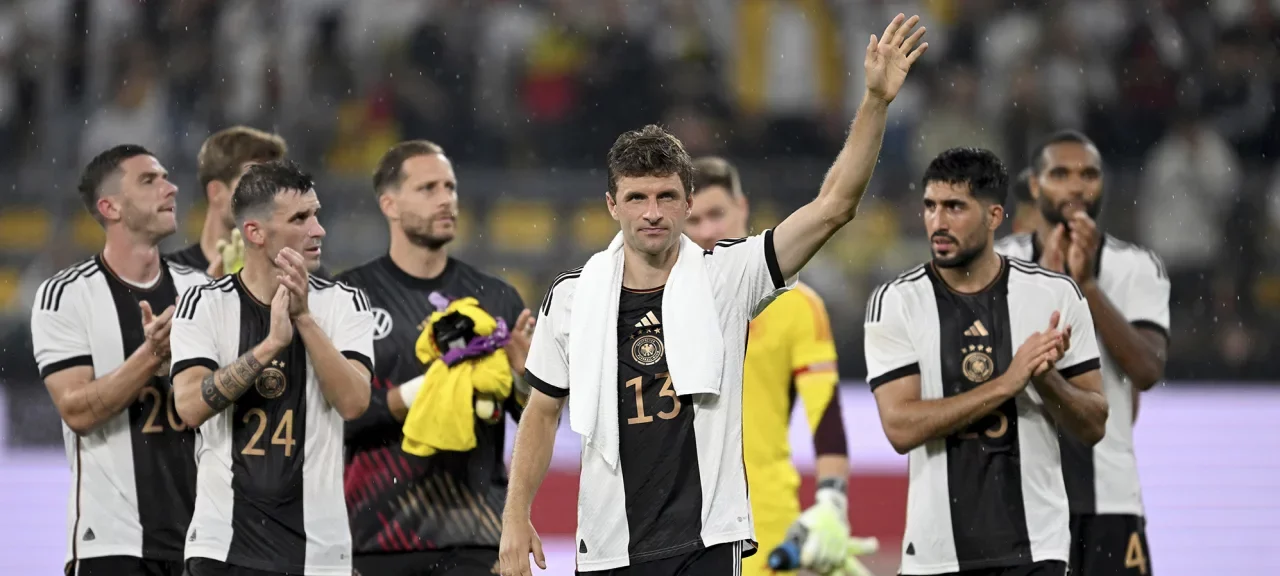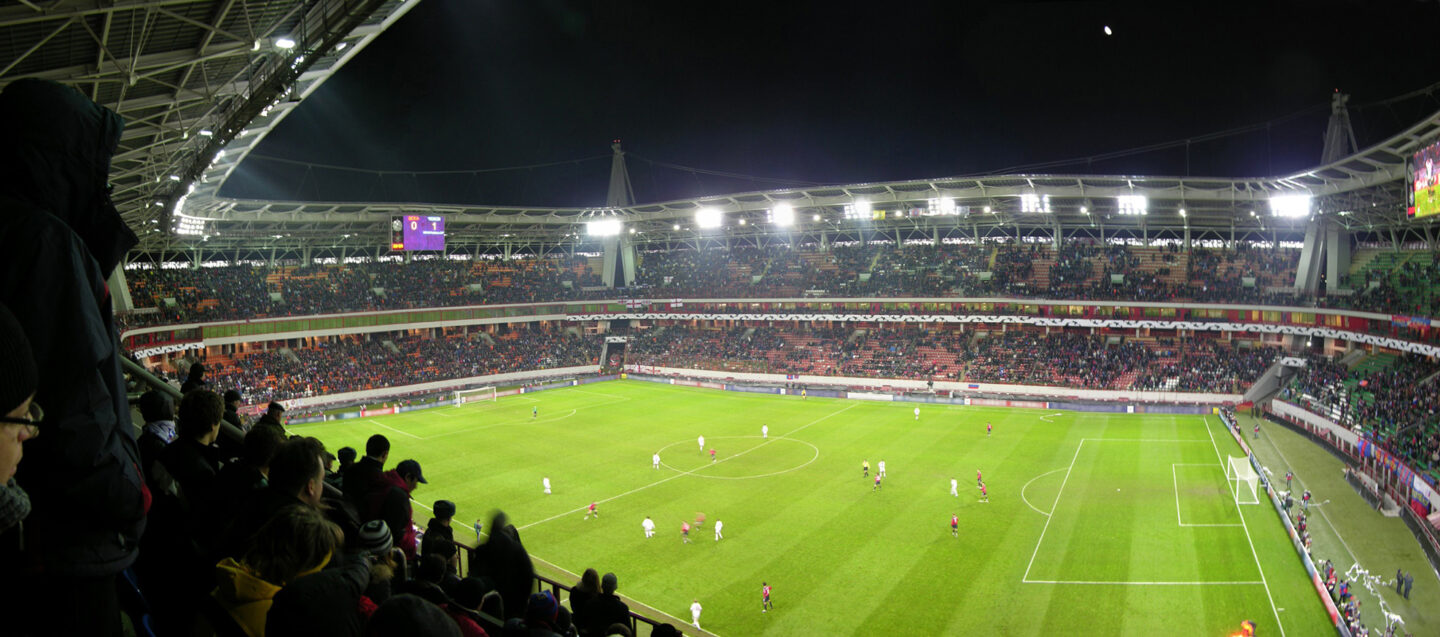
Why leaders should learn to value the boundary spanners
Entrepreneurial talent who work with other teams often run into trouble with their managers. Here are ways to get the most out of your ‘boundary spanners’...
Audio available

by Ina Toegel Published September 20, 2023 in Team building • 5 min read
The German national soccer team has been in a state of crisis. Its former Head Coach Hansi Flick was unable to steer the team back to winning ways, and the question facing the DFB German Football Association as they appointed his successor was what qualities that person should possess.
Julian Nagelsmann, who rose through the ranks as a young and talented coach at RB Leipzig and most recently at FC Bayern Munich, has now been named the new Head Coach for the German team. Nagelsmann has impressed many with his innovative and flexible tactics, his ability to develop young players, and his success in leading Leipzig to the Champions League semi-finals in 2020 and in the Bundesliga title race in 2021.
But does he have the right skills to lead the team to success – and will he be able to make unpopular decisions?
For Nagelsmann, as for any senior executive starting a new role with a crisis-hit team, selecting the right team members and building cohesion will be his biggest challenge. He must strike a balance between continuity and change, between experience and potential, between individual talent and collective performance. Among the most pressing questions he will face is whether to experiment with new players with less experience in the national team. Should he rely on established stars, or should he give more opportunities to younger prospects?

These are not easy questions to answer, but there are some principles that could guide him in his decision-making process:
As a leader, you should not be afraid to remove the players that are no longer performing at their best, even if they are popular or influential. In a similar situation, Jürgen Klinsmann, who led Germany to the semi-finals of the 2006 World Cup, made some bold and controversial decisions that paid off in the end. For example, he dropped some of the reigning heroes that were still performing at high levels, such as Oliver Kahn, and bet on Jens Lehmann for the position of goalkeeper instead.
Leaders should select the best players for the present moment, not the ones that were good in the past or have the potential to perform in the future. You should base your judgment on their current form, fitness, and motivation – not on their reputation, history, or potential.
The current timing of the coach appointment bears strong resemblance to Klinsmann’s arrival in 2006, when Germany hosted the World Cup after a series of bad performances. The incoming coach must be able to break the mold. Nagelsmann is the wunderkind of the Bundesliga, but he will have to take a strong stance and develop a clear strategic direction.

“For Nagelsmann, personality is a key asset. He has a sense of urgency and speed, which are essential traits given that Germany is running out of time to prepare for the Euro 2024 competition in seven months’ time.”
Strategically speaking, the team has suffered from a lack of vision. With influences including former German football manager Jürgen Klopp and Spanish football manager Pep Guardiola, the current German team lacks a commitment to a style of playing. This has implications for the way players are selected, trained, coached, and debriefed. Nagelsmann is known for his agility, which can be a great asset, but rather than trying to go off in two different directions, he needs to pick an approach and stick to it.
So, will he be able to craft a clear vision and mobilize a commitment?
The answer will be in his ability to develop a thick skin. One of the most important stakeholders for the coach of the national team is the media. He will have to proactively communicate and take charge of the narrative. The German sports press is often critical, and virtually every member of the public will have an opinion on his vision, strategy, and decisions. Therefore, he cannot afford to be distracted or discouraged by criticism, and more importantly, he will have to stand firmly by his decisions, which may be controversial.
For Nagelsmann, personality is a key asset. He has a sense of urgency and speed, which are essential traits given that Germany is running out of time to prepare for the Euro 2024 competition in seven months’ time. Among these traits, he will have to act fast under pressure and be decisive without over-deliberating or procrastinating. The sense of urgency must be supported by a willingness to assert himself and to establish his authority by making unpopular decisions when needed.
Finally, a personality that is open to change is essential. Nagelsmann will need to experiment with new tactics, training sessions, and in his selection of players. He will also need to be open and inclusive with a team that has high levels of diversity in background, race, and religion, to name a few.

Professor of Leadership and Organizational Change at IMD
Ina Toegel’s research focuses on team dynamics, organizational change management, top management teams during corporate renewal, and founder influence. She directs the Leading High-Performance Teams program which supports executives in achieving team flow and transforming a group of individuals into a high-performing dream team.

July 3, 2025 • by Eric Quintane in Team building
Entrepreneurial talent who work with other teams often run into trouble with their managers. Here are ways to get the most out of your ‘boundary spanners’...
 Audio available
Audio available
June 2, 2025 • by George Kohlrieser in Team building
Leadership Honesty and courage: building on the cornerstones of trust by George Kohlrieser Published 17 April 2025 in Leadership • 5 min read DownloadSave Trust is the bedrock of effective leadership. It...
 Audio available
Audio available
May 29, 2025 • by Shelley Zalis in Team building
People don’t work for companies. They work for leaders they trust. And that trust is being tested like never before....
 Audio available
Audio available
May 5, 2025 • by Peter J. Meyers in Team building
The soulless language of management speak leads to uninspired and disengaged teams. Here’s how to sharpen your language skills to become a more effective leader....
 Audio available
Audio availableExplore first person business intelligence from top minds curated for a global executive audience